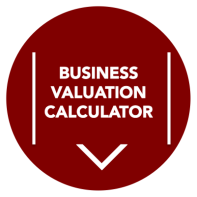
According to a survey by the Federal Trade Commission over nine million people become victims of identity theft each year, making this the fastest growing crime in America. Do not let yourself become a statistic with this easy to follow identity theft checklist.
Social Security Card: Do not carry your social security card in your wallet or write it down on any unnecessary documents. Only give this out if it is absolutely necessary.
Date of Birth: Do not have this written down on any unnecessary documents, especially ones containing your social security number. Your DOB and SSN are the two most identifying pieces of information about you and both are a goldmine to a thief.
Personal Identification Numbers (PIN): It is never a good idea to write your PIN down. If it is necessary, keep it at home and not in your wallet or anywhere close to your debit/credit cards. Along these same lines, make sure the keypad is always blocked/screened from the view of others at any ATMs or machines at which you may be using your card/PIN.
Mail: Verify your mail is in a secure location and ask the post office to hold your mail if you will be away for more than a few days. If you notice you are not receiving bills or statements on their routine cycles, contact the sender and inquire as to the status. Intercepted billing statements can lead to identity theft, or at the very least unauthorized charges on your accounts.
Receipts: Keep receipts and compare them to your financial statements to make sure no charges appear that were not authorized by you. If you see any unauthorized transactions, contact your financial institution immediately and talk to the fraud department, not just a sales representative!
Personal Documents: Make sure you shred any personal documents, credit card offers, receipts, bank statements, etc., before throwing away. If you are not sure whether to shred or not, shredding is always the better option!
Solicitations: DO NOT respond to unsolicited phone calls or mail requesting personal information. Remember, just because it looks legitimate doesn’t mean it is. If you receive a legitimate looking request make sure to call the provider and verify its authenticity.
Computers: Always have the maximum amount of security, antivirus and firewall protection offered for your electronic devices. The digital age makes everything easier, including criminal activity!
Credit Report: Check your credit report at least once a year. Most financial institutions offer this free at least once a year. If not, three reputable sources include Equifax, Experian, or Trans Union.
With a little due diligence you can avoid becoming a victim of identity theft. If you feel you are a victim of identity theft, report it immediately to your financial institution, your local police department, and contact the credit-reporting bureaus disputing the charges you believe to be fraudulent.
For more information regarding the steps to follow if you believe you have been a victim of identity theft please visit: http://www.justice.gov/sites/default/files/usao-wdwa/legacy/2012/08/18/Identity%20Theft%20Checklist.pdf
Interested in learning the value of your business?
There are a lot of factors when it comes to determining the value of your business, whether you are preparing for a sale or want to get a reliable business valuation. The first step in that process is to establish your company’s EBITDA (Earnings Before Interest, Taxes, Depreciation and Amortization), and one of the best ways to do that is with the FREE EBITDA calculator offered by Goosmann Law Firm. Our calculator will clearly break out your net profit, plus total EBITDA, benefits, and add-backs—and more.
Opportunity favors the ready. Download our FREE EBITDA calculator today and start preparing for tomorrow.






Let Us Know What You Thought about this Post.
Put your Comment Below.